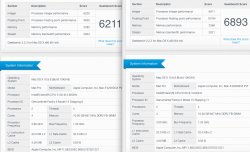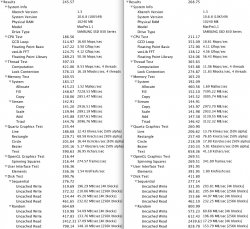Thats the point actually. Web browsing, word processing, and iTunes are single threaded apps, they will not go faster with more cores. 11% boost compaired to 11% decrease is a big change. 8 cores running slower will make all single threaded apps run slower. I for one took the route of going with dual 3Ghz quad cores over dual 2.66 dual cores...wanted to cover both angles.
I agree but what gains does 11% actually get you? Almost nothing and further if normal day to day activities are all that you are doing with a Mac pro, why do you have a Mac pro?!? These can be accomplished with a mini and cost you less energy....




